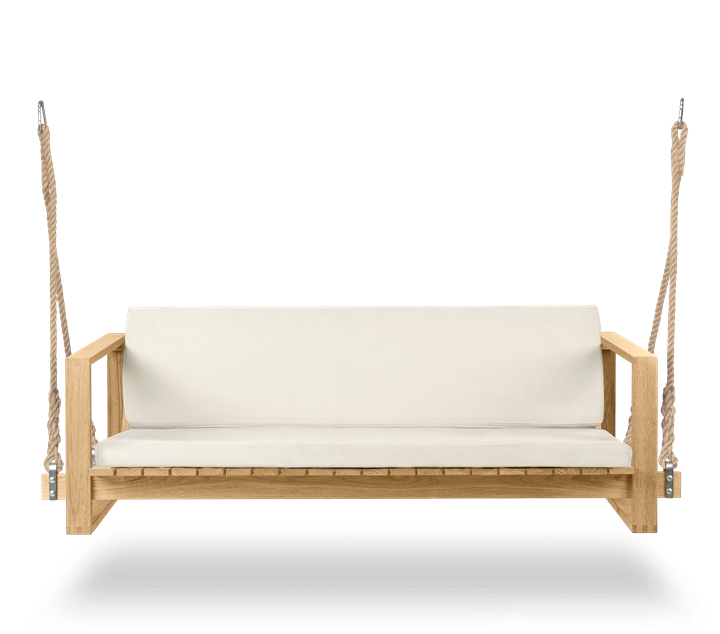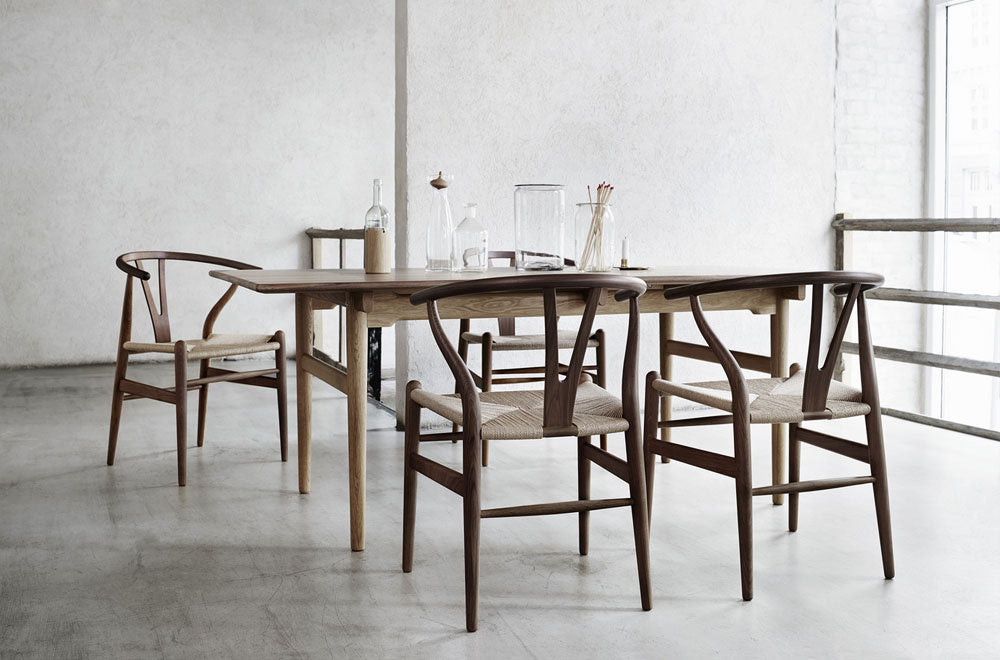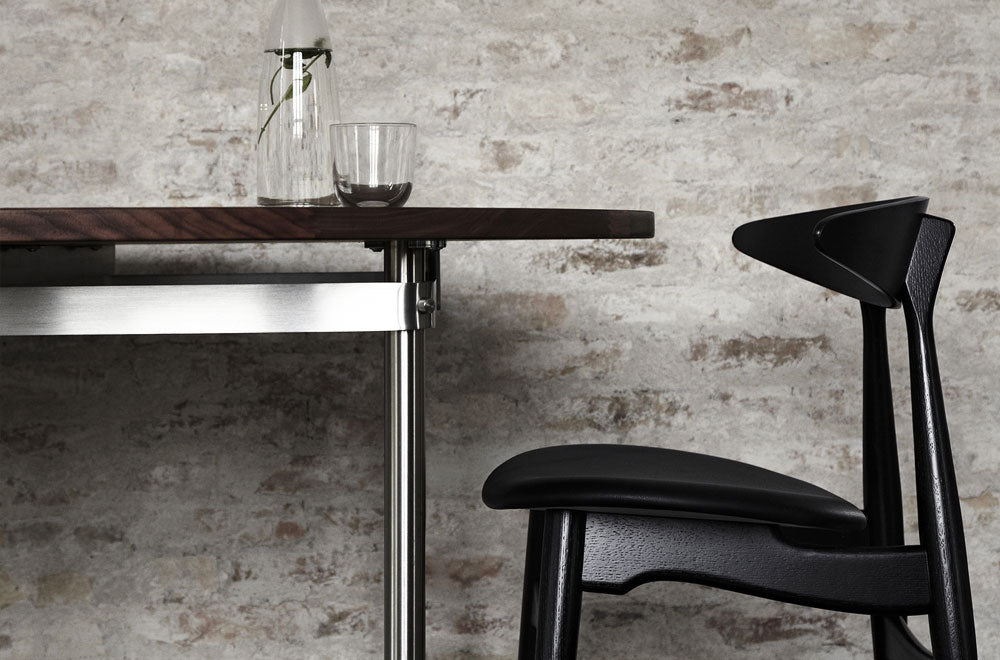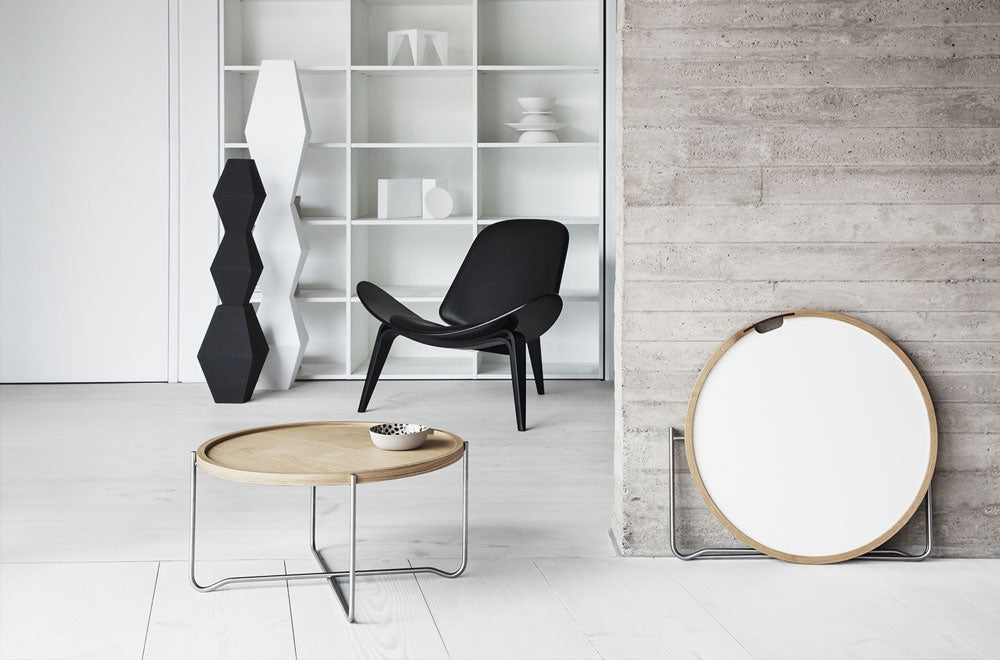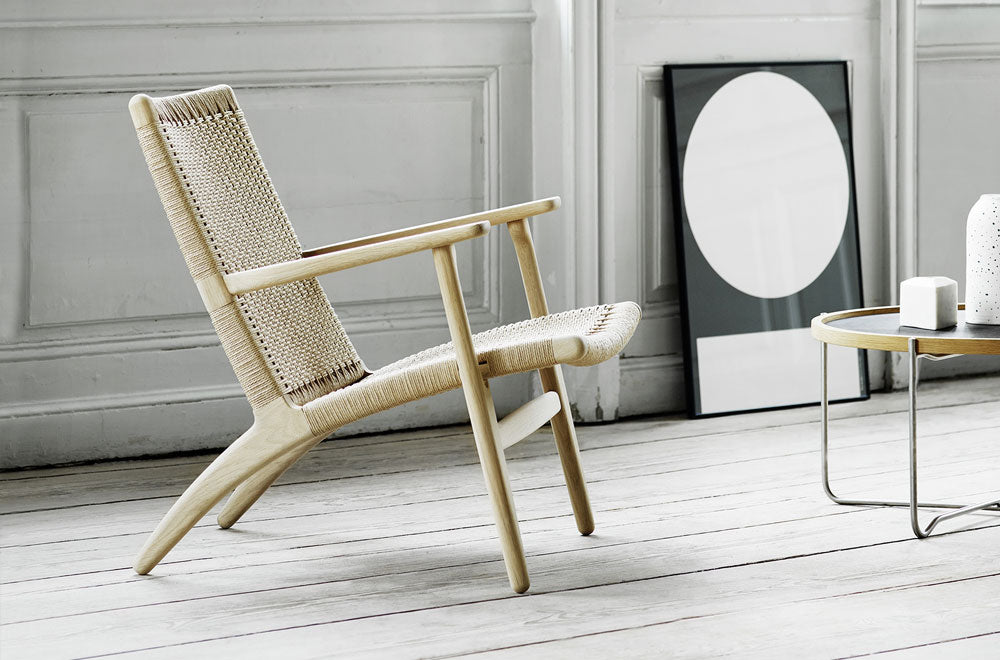The BK13 swing sofa was designed in 1959 by Bodil Kjær as part of a series of beautifully crafted, architecturally inspired indoor-outdoor furniture. As with the rest of the series, the Danish architect looked to Cubism for inspiration for the sofa’s precise, streamlined form, which is crafted from solid teak. Designed to withstand harsh weather, the swing sofa also offers superior comfort, suspended from knotted ropes for a relaxing rocking motion.
Designed for indoors and out, it can be supplied with cushions made from weather-resistant Sunbrella fabric as well as an A-frame for easy suspension.
151W x 66D x 106H cm
Rope for suspension included. Fittings for suspension are not included.
Solid Teak
Bodil Kjær has designed a number of furniture pieces or, architectural elements, as she prefers to call them. Her aim was never to create sculptural statements but rather to find functional, economic, and aesthetic solutions
Through her vast travels, Danish professor and architect Bodil Kjær has gained deep insight into the relationship between design and architecture and contributed significantly to the spread of Danish Modern design principles – this was not, however, the main purpose of her travels. Kjær wanted to explore methods and materials that could be used to realize her ideas for functional furniture systems and work environments.
Kjær was born in 1932 and grew up on her family’s ancestral farm near Horsens, Denmark, where she learned to appreciate quality and aesthetics.
She also gained a respect for nature and an interest in the dynamics of society.
As a furniture designer, Kjær views furniture construction from a purely technical perspective, interplayed with modern architecture and created for people. She always considers context and has collaborated with different professions in her desire to optimize physical settings.
Her furniture systems support creative people in their work processes, and her designs include indoor and outdoor furniture, light fixtures, a service trolley and vases, all characterized by lightness and a functionalist expression.





